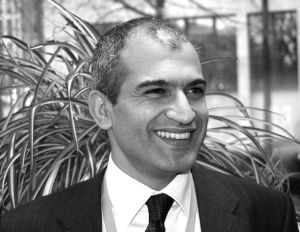|
| Biography |
| |
 Currently, Dr. Luka holds the position of Scientific Officer in the International Scientific Cooperation unit, Research Directorate General, European Commission.
Currently, Dr. Luka holds the position of Scientific Officer in the International Scientific Cooperation unit, Research Directorate General, European Commission.
He received his B.Sc. degree in Microbiology and Chemistry from Ain Shams University in Cairo in 1986 and his Ph.D. in Molecular Microbial Genetics from the University of Tennessee, USA. As of 1993, he has occupied several academic positions in Egypt at the National Research Centre (NRC), Agricultural Genetic Engineering Research Institute (AGERI) and Mubarak City for Science and Technology (MuSCAT), respectively. During the period of 1994-1997, he acted as a Visiting Professor in Molecular Genetics at the International Institute for Genetics and Biophysics, Italian National Research Council (CNR), Naples, Italy.
In 1997, he moved from academia to the Industry joining Procter & Gamble company, first in the Human & Environmental Safety department and ultimately as External Relations Manager for Europe, Africa and the Middle-East. He was based in the company’s European Headquarters in Brussels.
He is the author of numerous scientific articles in international peer-reviewed journals as well as book chapters in the scientific literature.
Dr. Luka speaks Arabic, English, Italian and French. He is a musician of classical Arabic music, a cook and a Judo coach. He has had a musical release in the USA and two published food recipes.
|
| |
|
|
| |
| Abstract |
| |
|
"Non-EU Country Participation in Framework Programme 6 (FP6) and Funding Opportunities to International Scientific Cooperation in the Upcoming FP7" |
|
|
|
The European Commission supports its research policies through a multi-annual Framework Programme (FP), at the beginning of which a specific budget and a set of research priorities are established for the entire duration of the programme. We have currently entered the final year of the Sixth FP programme (FP6, 2002-2006) and therefore, the primary opportunities for funding International Scientific Cooperation activities and European research in general will materialise through the funding Instruments of the Seventh FP programme (FP7, 2007-2013). The general architecture of FP7 is quite different from that of FP6 both in its general architecture and in the way the International Dimension is weaved within its various specific programmes.
Within the FP programme, the funding for any type of research activity is channelled through various Instruments. For example, some instruments are used to fund research activities as is the case for the Specific Targeted Research Project (STREP) Instrument, while others provide funding for the coordination of research activities or research policies, as is the case for Networks of Excellence (NoE), Coordination Actions (CA) and Specific Support Actions (SSA).
The aim of this talk is to give a brief account of the nature and extent of participation of Third Countries in FP6 and to give a schematic overview of FP7 in general and especially of the way International Cooperation is structured in it. |
|
| |
|